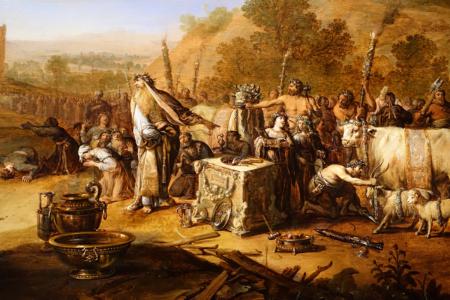Phoebe’s legacy
Most New Englanders were shaken by the bullying-induced suicide of Phoebe Prince, the 15 year-old, North Hadley high school student. The cause of this newly arrived Irish immigrant taking her own life has now moved on to courts, but media reports suggest that several of her school mates found her dating of a popular upperclassman “inappropriate.”
Perhaps Phoebe didn’t follow the rigid social mores and fine territorial rules of the modern high school. She was a pretty girl and perhaps threatened others in the dating game. She, a new girl, had no business dating a prominent athlete. Public schools are quick to summon grief counselors, but slow to deal with the social climate. The basic climate change needed here was the recognition that the student bullied this week could next week be me. Perhaps a Catholic school would have done a better job of protecting the weakest (or in this case, the newest) among us.
Meanwhile, the consequences of Phoebe’s bullying have been turned over to the courts. Further, as the judicial system grinds away, the boyos of the Massachusetts Legislature have been busy hammering together various proposed laws to outlaw bullying. As the kids say, “Good luck with that!”
Bullying is as old as Cain and Abel, and has been a staple of schooling since we started corralling children into classrooms. However, now it is different. It is more intense. It is more widespread and more unchecked.
The rise in bullying and so many of the ills facing our young result from multiple causes, from the weakening of the family to our toxic media culture. However, one cause that is rarely cited is the “student freedom movement,” the drive to empower students to take more control of their school lives and push back against oppressive and demeaning rules.
Those who haven’t walked the halls of a public middle or high school recently or sat in on a teacher’s struggle to capture and hold the attention of her students may not be aware of the profound changes that have gone on in our schools. For decades now, since the films “Ferris Bueller’s Day Off” and “The Breakfast Club,” the media has been fascinated with American adolescents at school. In turn, American adolescents have been fascinated watching themselves on various media screens. Art imitates life and life imitates art. That is, if scenes of witty, fast-mouth children verbally dancing around dullard teachers and administrators are art.
The impetus for the “student freedom movement” cannot simply be laid at the feet of the youth-pandering media. Students have been “empowered” by this nation’s dominate philosophy of education, Progressive Education. This hoary relic of the first half of the 20th Century is hardly taught to teachers anymore, but it is deep in teachers’ understanding of what they should do and particularly their understanding of what a student is. In this Dewey-eyed view, children are naturally good, small citizens who must be readied to man our democracy. (The fact that we are a republic is rarely, if ever, taught!) As such, students need practice at creating and controlling their environment. Translated: Step back, Teach! Give Jack and Jill room to practice their democratic skills (read: their rights)!
Down through the centuries, however, Christians have taken a different view of children and therefore students. We recognize “man’s fallen nature,” and that children, and all of us, need help to control our passions and desires. Left to ourselves, in “the state of nature,” things tend not toward the Garden of Eden, but a Lord of the Flies world.
Bullying, then, is a natural consequence of an environment where children lack both a strong program of moral education and strong consequences of preying upon one another. Granted, many students come to school already civilized and eager to feast on the school’s intellectual banquet. Okay, some students, anyway. Many, especially the vast majority of today’s children who have been exposed from birth to wall-to-wall television and various electronic toys, find our classrooms exquisitely boring, lacking as they do Jay Leno-like entertainers. While this is regrettable, as they say, “That’s life.” On the other hand, our children, unlike their forebears, have not had to go to work in the mines or the fields at six or seven years old. Historically speaking, their lives are comfortable, if not downright good.
Bullying may be an understandable reaction to school’s forced confinement and man’s natural tendency to prey upon those weaker than us, but it can be stopped and it can be replaced with something much more important to students’ development. At the core of the solution is for both administrators and teachers to reclaim their role as educators of the whole student, not just the development of their minds and bodies, but their characters. Not long ago this was at the core of the educator’s job description. Teachers were expected to teach about and insist upon the core moral virtues that are required of civilized life, virtues such as fairness, kindness and protection of the underdog.
Good schools did, and some do today, create a climate where respect for others was “in the air.” It was expected. Teachers confidently taught about “good behavior” and “poor behavior.” The literature and history students read dealt with these issues and students’ minds and imaginations were filled with models of heroic and noble lives, such as Sojourner Truth and Johnny Tremain. And when teasing or meanness broke out, it was quickly dealt with. Whether in the upper grades of middle schools or high schools, older students knew it was their job to be good examples of fairness and to protect younger students on the playground or the school bus. It was their job! When things broke down, as they inevitably do, teachers and administrators acted. They were not afraid to use our age-old tools against violations of the civic code: punishment and, worse, shame.
Pendulums, especially in public education, swing. Perhaps the viciousness that drove Phoebe Prince to hang herself will help our schools rediscover a fundamental reason for their existence: to help our children acquire the good habits necessary for civilized life.
Kevin and Marilyn Ryan edited “Why I Am Still a Catholic” [Riverhead Books, 1998] and live in Chestnut Hill, Mass.



















